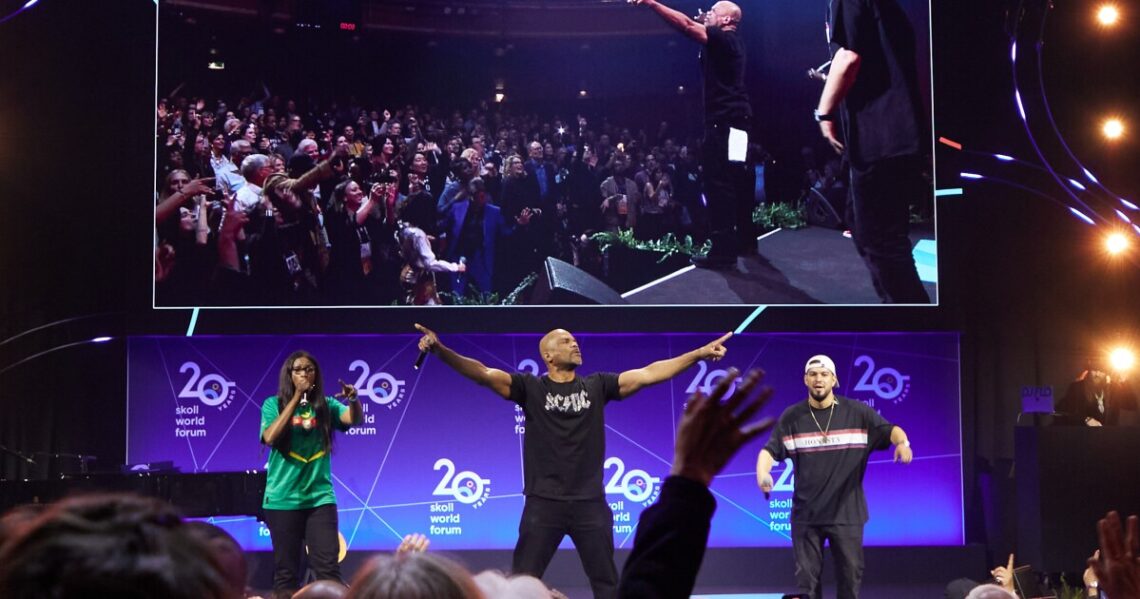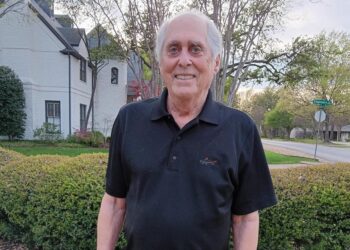In 2005, Dr. Olajide Williams felt like he had two jobs. Each evening, he’d finish up his work as a physician at Harlem Hospital Center and walk seven blocks to the studio of hip-hop artist and “The Original Human Beat Box” Doug E. Fresh.
“I would be with Doug for hours and hours into the wee hours of the morning,” Williams recalls. “We would be going over different beats, different sounds.”
Their goal was to create a hit but with an unusual lyrical premise — to teach people how to detect stroke symptoms and respond appropriately. Williams wanted to demonstrate that hip-hop could be used for public health interventions.
His colleagues were dubious. “There was a lot of skepticism about whether this type of work could lead to a fruitful, productive” career, he admits.
Dr. Olajide Williams (right) was instrumental in creating the “Stroke Ain’t No Joke” hip-hop song in collaboration with rapper Doug E. Fresh. He’s sitting next to Darryl “DMC” McDaniels of Run-DMC during a panel on hip-hop and public health at the Skoll World Forum.
But Williams knew when it came to more traditional public health interventions, “they don’t diffuse into society” as easily. “Our problem is not coming up with the answers. Our problem is often scaling those answers.” To Williams, music, and hip-hop in particular, could serve as a powerful tool. “Music has always been able to diffuse not just through our…
Read the full article here







